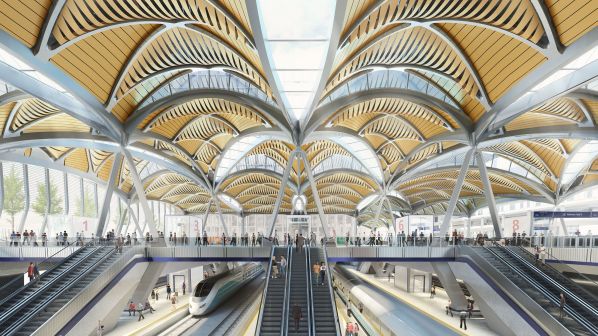The draft, which has not been released but has been seen by the Financial Times, says there is considerable risk that the price tag for the project will increase by around 20% from the £81-88bn cost announced in September last year. This would nearly double the project’s previous expected cost of around £57bn.
Under the current plans, Phase 1 involves construction of a 220km 360km/h line between London Euston and Birmingham Curzon Street stations, while the 69km Phase 2A would extend the line north to Crewe and Phase 2b would extend the line by 82km from Crewe to Manchester and 198km from Birmingham to Leeds.
The review suggests pausing work on Phase 2b to investigate whether it could include a mix of conventional and high-speed lines instead of a direct high-speed line. The Financial Times says this connection would also not be completed until 2040, seven years later than originally expected.
Construction is due to begin the spring, with preliminary works already underway, but the review says significant changes are required to ensure HS2 is ready to manage the project, the review says.
The review suggests reducing costs by having the private sector contribute towards the construction of the stations, lower specifications, improving cost control, and consider running 14 trains an hour instead of 18.
Although the report was submitted to the Department for Transport in November, transport secretary, Mr Grant Shapps, has reportedly had some questions about its content and sent back the document for revisions.
The report was due to be published by the end of 2019. However, the government, which was elected in December, has delayed this, stating only that publication of the report will take soon. In the meantime, lobbying on both sides of the debate has ramped up. Lord Tony Berkeley, a deputy chair of the Oakervee review, was highly critical of the report and its finding, releasing his own report. Politicians from northern cities have also spoken out in favour of HS2 and the risks to their respective economies if the project is cancelled or scaled back.
In addition, some of Britain’s largest construction firms have written a letter to prime minister Mr Boris Johnson warning that cancelling the project would do “irreparable damage” to the industry, costing thousands of jobs.
For detailed information on high-speed projects from around the world, subscribe to IRJ Pro.

